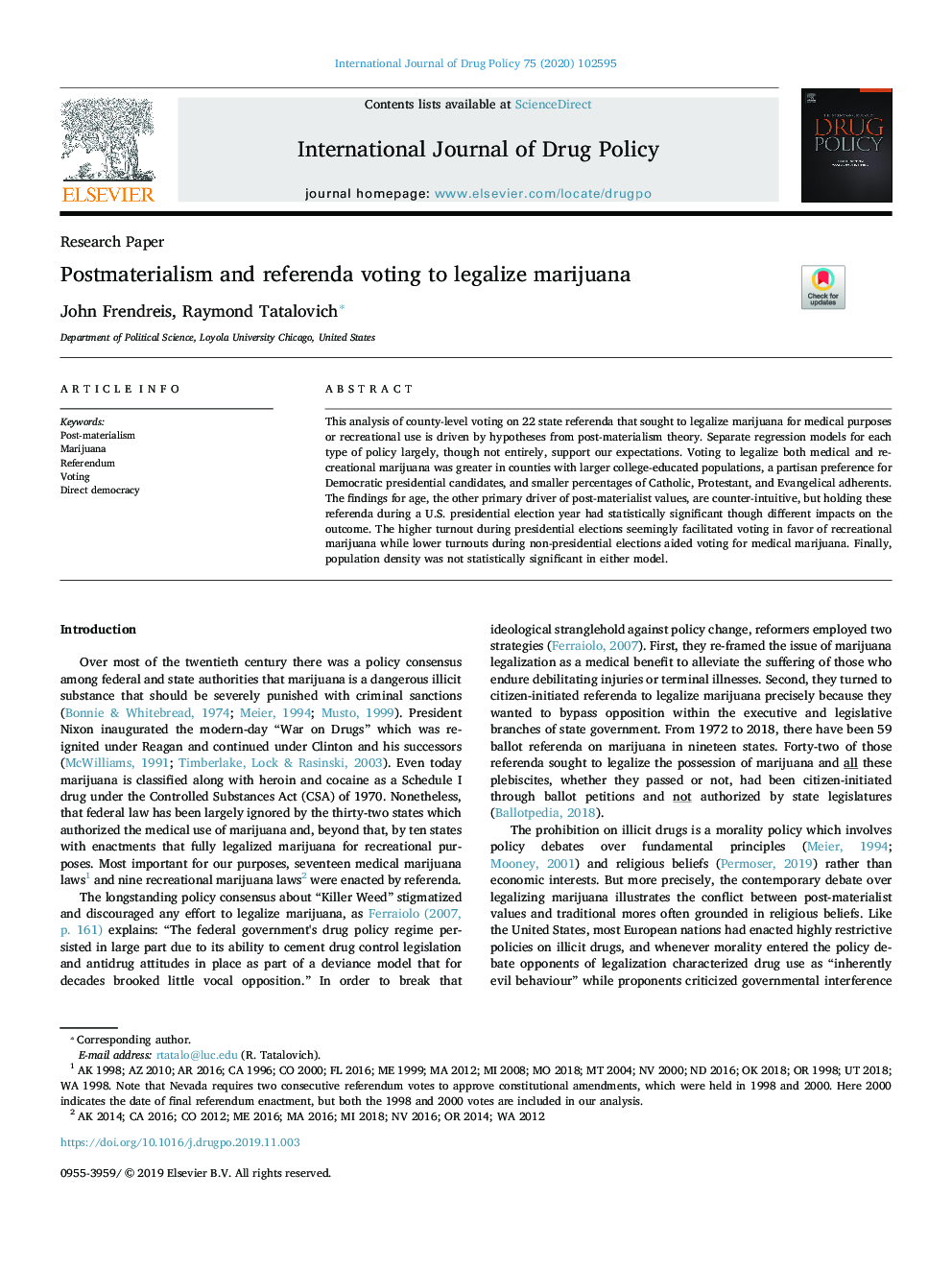| Article ID | Journal | Published Year | Pages | File Type |
|---|---|---|---|---|
| 13467332 | International Journal of Drug Policy | 2020 | 7 Pages |
Abstract
This analysis of county-level voting on 22 state referenda that sought to legalize marijuana for medical purposes or recreational use is driven by hypotheses from post-materialism theory. Separate regression models for each type of policy largely, though not entirely, support our expectations. Voting to legalize both medical and recreational marijuana was greater in counties with larger college-educated populations, a partisan preference for Democratic presidential candidates, and smaller percentages of Catholic, Protestant, and Evangelical adherents. The findings for age, the other primary driver of post-materialist values, are counter-intuitive, but holding these referenda during a U.S. presidential election year had statistically significant though different impacts on the outcome. The higher turnout during presidential elections seemingly facilitated voting in favor of recreational marijuana while lower turnouts during non-presidential elections aided voting for medical marijuana. Finally, population density was not statistically significant in either model.
Related Topics
Health Sciences
Medicine and Dentistry
Psychiatry and Mental Health
Authors
John Frendreis, Raymond Tatalovich,
